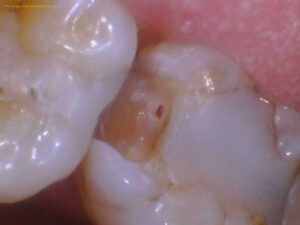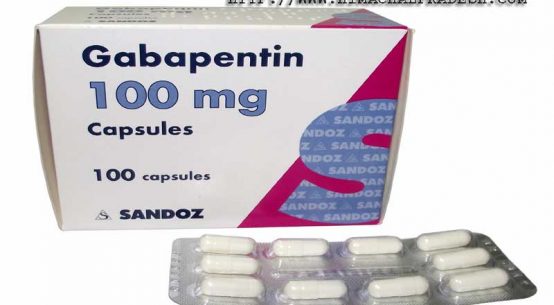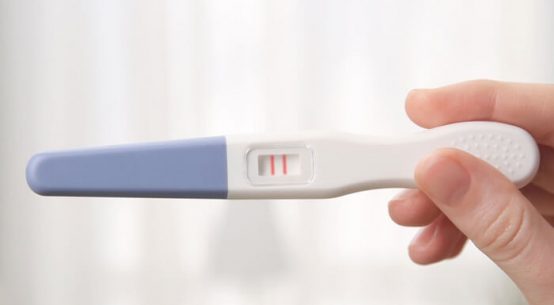Are you looking for ways to kill tooth pain nerve in 3 seconds permanently? If yes, this article will undoubtedly be useful to you. Due to various dental conditions including infections or decay, tooth pain can be a numbing ache in the tooth. Despite the fact that dental pain can be numbing and tingling, managing it can be challenging for a variety of reasons. These reasons include the emergence of swelling, redness, bacterial infections, or bleeding. For many people, these symptoms might lead to anxiety and panic.

So, In This blog, We’ll go Through Top 10 Ways to Kill Tooth Pain Nerve in 3 Seconds Permanently.
What Does The Pain in a Nerve Tooth Feel Like?
Tooth pain happens when there’s something wrong with the inside of your tooth, specifically with part called the nerve. This nerve is like a tiny wire that sends messages to your brain about what’s happening in your tooth. When this nerve gets hurt or damaged, it can make your tooth hurt a lot. The area of your tooth that isn’t feeling well may cause what feels like a sharp, shooting ache. It might be quite difficult to ignore this discomfort because it can be so severe. It may cause persistent throbbing pain that lasts for hours or days without going away.
Many People Claim to Experience:
- As soon as the nerve is destroyed or exposed, there is an immediate intense pain.
- Tough to ignore persistent throbbing and painful sensations.
- Sensitivity to both cold and heat in the vicinity of the injured nerve.
- Unbearable discomfort that interferes with day-to-day activities.
Tooth discomfort might be terrifying due to all these symptoms. Therefore, it’s better to get therapy as soon as you can.
How Can You Kill Tooth Pain Nerve In 3 Seconds Permanently?
While there isn’t a quick fix for instantly relieving pain from toothache, there are a few doable techniques that can effectively help you to kill tooth pain nerve in 3 seconds permanently.
Root Canal
Regular dental procedures like root canals can end tooth nerve pain permanently. In order to remove the painful, infected pulp, a dentist drills into the tooth. After sealing it with a temporary or permanent filling, they fill the region with an inert substance. You will no longer experience any soreness as a result of this essentially killing the tooth’s nerve. Root Canal will cure all your discomfort and miraculously kill tooth pain nerve in 3 seconds permanently.
Root canals efficiently relieve dental pain and have a very high success rate. After going through the procedure, the majority of patients said their tooth pain was completely gone. The time it takes the dentist to anesthetize you and work on your tooth can occasionally be less than three seconds.
It may be frightening to consider drilling into the tooth and extracting the diseased pulp material. But this procedure is comparatively painless for patients, and most of the time dentists use to perform it to kill tooth pain nerve in 3 seconds permanently.
Tooth Removal
Taking out the affected tooth is another quick remedy for dental discomfort. Even though it may seem extreme, this approach may be an option for people who suffer from severe, persistent toothaches. This process is suitable one especially in that kind of tooth pain that don’t go away with conventional remedies.
This tooth removal process helps the pain go away and prevents any more uncomfortable feelings. Taking out the tooth can also prevent worse problems like infections or harm to the nearby teeth and gums.
However, dentists only perform this procedure when there is no other option because once a tooth is extracted, it cannot be replaced. But there is a procedure known as a dental implant that dentists can use to replace the missing tooth.
Fillings
Your dentist may recommend a filling if a cavity or other tooth decay is the cause of your tooth pain. The decaying areas of your tooth must first be removed. The space created by the decay will then be filled up by the dentist using a filling substance. Composite resin, a sort of special plastic, is typically used to create this material. The filling’s two main goals are to fill the cavity and restore your tooth’s strength.
In order to fit the tooth’s natural contour, the dentist will carefully shape the filling. In this manner, it is at ease in your mouth and is usable in the same manner as your other teeth. The importance of a filling lies in its ability to prevent further discomfort and degradation. Maintaining strong, healthy teeth is a regular treatment that many people receive.
Best Painkiller To Kill Tooth Pain Nerve In 3 Seconds Permanently:
Acetaminophen, Ibuprofen, naproxen, or aspirin are examples of anti-inflammatory medications that can temporarily ease tooth nerve discomfort. These operate by lessening localized inflammation, which may help reduce pain. These medications can be taken to assist control pain and are sold over-the-counter.
However, as with any other kind of medication, you should always seek a doctor’s advice before using these products and pay attention to the directions on the label. They may have unfavorable side effects, including as liver damage and digestive problems.
Home Cures To kill Tooth Pain Nerve In 3 Seconds Permanently:
If you are experiencing a painful sensation in your tooth because of its nerve, there are some natural ways you can try to help ease the discomfort. Some of the natural remedies are mentioned below:
Cold Compress
A cold or ice compress applied to the afflicted area will help ease tooth nerve discomfort. Blood vessels are constricted by cold, which lessens inflammation and numbs the area. To do this, place some ice or crushed ice on the side of your face that is hurting and wrap it in a towel. Leave it there for 15 minutes.
For a while, this may help your tooth’s nerve discomfort. Take breaks often because using ice compresses for an extended period of time can irritate the skin.
Mouthwash
Mouthwash helps alleviate tooth nerve discomfort. Look for an antiseptic mouthwash that contains fluoride or chlorhexidine gluconate for the best results. These components have been demonstrated to lessen the swelling and discomfort brought on by a damaged tooth nerve. Swish the mouthwash about in your mouth for at least 30 seconds before spitting it out to utilize it.
Saltwater Rinse
The best treatment for dental discomfort has always been a salt water rinse. It helps reduce gum swelling and inflammation while also eradicating the infection-causing germs. Warm water with a teaspoon of salt should be swished around your oral cavity for around 30 seconds before being spit out.
By eliminating the fluids that produce swelling and lowering inflammation, salt can also aid with toothache discomfort. As a result, it is a quick and efficient technique to treat tooth nerve pain, with results visible in three seconds.
- Hydrogen Peroxide: This organic disinfectant can aid in easing the discomfort and swelling brought on by toothaches. Fill a cup with 3% hydrogen peroxide and water in equal parts. Use this mixture twice daily for 30 to 1 minute as a mouthwash. As this substance can be damaging to your mouth’s tissues, avoid taking too much.
- Oregano Oil: Natural analgesic and antibacterial oregano oil can help relieve tooth nerve pain. It has been shown to lessen inflammation, and because of its antimicrobial characteristics, it’s wonderful for lessening tooth sensitivity. Apply oregano oil to your sore tooth three times a day after diluting one to two drops with a spoonful of olive or coconut oil.
- Peppermint Tea: This tea is a proven natural therapy for relieving tooth nerve pain. Only two tablespoons of peppermint leaves need to be steeped in hot water for ten minutes before the tea is strained. If you’d like, you can include some honey.
The Peppermint’s Menthol Ingredient Relieves Nerve Pain by Numbing The Affected Area And Lowering Inflammation.
- Thyme and Clove Essential Oils: Strong antiseptics and natural analgesics are thyme and clove oils. Simply mix a few drops of each essential oil in a cup or bowl of warm water, then swish the solution about your mouth for a few seconds to lessen swelling and eliminate pain.
- Fresh Garlic: For centuries, people have used garlic as a home cure for toothaches. Crush one fresh garlic clove and apply it to the affected region using this way. Any germs in your mouth that could be causing the pain will be helped to kill by the garlic.
- Apple Cider Vinegar: The amazing natural product apple cider vinegar has several health advantages for our bodies. In addition to being acidic in nature, it possesses potent anti-inflammatory qualities.
When used as floss, apple cider vinegar can efficiently target inflammation and destroy bacteria when diluted in water.
Do Muscle Relaxants Reduce Pain from Tooth Nerves?
People frequently take muscle relaxers as a form of medication to get relief from pain, including muscular spasms. They primarily assist those suffering from chronic pain illnesses like fibromyalgia and arthritis.
They also provide extra advantages. Muscle relaxants occasionally assist in relieving tooth nerve discomfort. Muscle relaxants function by preventing the brain from receiving pain signals.
They can therefore aid in lessening the sensation of tooth nerve discomfort. Additionally, muscle relaxants could successfully lessen local inflammation, which might provide some pain relief.
However, it is important to use muscle relaxants responsibly because they are not a panacea for tooth nerve pain. They may have harmful adverse effects, including drowsiness and dizziness, if used incorrectly or in excessive dosages. Additionally, before using any form of muscle relaxer, talk to your doctor because some of them may mix with other medications you are on.
How to Reduce Pain at Home Before Visiting a Dentist:
Here are three things you may do at home to lessen the discomfort before visiting a dentist for expert care:
- For about 15 minutes at a time during the day, place an ice pack directly on your cheek close to the affected area of your mouth. The pressure should lessen the discomfort, and the cool temperature will lessen swelling and inflammation.
- Take an over-the-counter pain treatment such acetaminophen or ibuprofen as directed on the label. For optimal benefits, make sure to consume the pill with a full glass of water.
- Rinse your mouth thoroughly several times a day with warm saltwater to reduce inflammation and prevent bacteria growth in your mouth from making your symptoms worse. This is especially important after meals and snacks.
Conclusion
So here we have discussed in detail regarding various processes to kill tooth pain nerve in 3 seconds permanently. There are numerous causes of tooth or nerve pain, thus it is crucial to diagnose the conditions at home and treat them from the root causes. Tooth decay and infections are a couple of these causes.
Keep in mind that discomfort can represent various ailments, such as grinding your teeth together. When that occurs, nightguards can offer immediate help. Additionally, you can look at many methods that can assist you to kill tooth pain nerve in 3 seconds permanently.
Read Also: Pellamore Cream Canada Boosting Your Beauty by its Advanced anti aging
FAQs:
Q. How do you stop nerve pain in your tooth in just 3 seconds?
For patients having nerve discomfort in their teeth, root canal and tooth extraction are both possible treatments. By extracting the problematic tooth or treating the infection, they treat nerve discomfort. These procedures, which rapidly relieve nerve pain, are only something a dentist can do.
Q. How many painkillers for a toothache can you take in a day?
The maximum daily dose of painkillers is eight tablets. Long-term usage of painkillers is not advised because it may result in other health issues.
When tooth nerve pain initially appears, you can take an analgesic. In order to find the source of your toothache and treat it, then please make a consultation with your dentist as soon as possible.
Q. How Can You Kill Tooth Pain Nerve In 3 Seconds Permanently?
The nerve of a tooth is permanently destroyed during a root canal operation. Before drilling into your tooth to remove decay and bacteria from the root canal, your dentist will numb the area around it. The region will then be filled with a special substance to seal off the opening and prevent additional discomfort or infection.
This is a fantastic approach to prevent recurring issues with the same tooth. However, since your dentist wants to make sure the infection is entirely gone before closing the region, root canals could require numerous sessions. If not, the infection can return.
Q. How to Prevent Tooth Pain?
Poor oral hygiene is typically the root of toothaches. Avoiding toothaches can be made easier by practicing proper oral hygiene, such as brushing twice daily, drinking adequate water, flossing, hewing food fully, and cleaning your tongue.
Q. Why Tooth Nerves Are So Painful?
As a result of the pulp’s sensitivity to infections and decay, the tooth’s enamel may be harmed or degraded.
Q. How Can One Treat Tooth Pain With Garlic?
Natural compounds that have potent antibacterial activity are produced by garlic. But this substance can only be found in freshly squeezed, peeled, or chopped garlic. To treat your gums, either chop a piece of garlic in half and dab it on them, or prepare a garlic paste.
Q. Is Tooth Nerve Damage Bad?
The nerve injury that surrounds the teeth is one of the most frequent causes of dental pain. Any degree of tooth movement, as well as severely cold or hot temperatures, can cause the nerve to become seriously injured. Most foods can be very painful to eat because of this.
Q. How Painful Is a Root Canal?
A root canal isn’t more painful than a regular dental procedure like getting a filling or having a wisdom tooth extracted because patients are given anesthetic. However, a root canal usually leaves the tooth feeling a little sore or numb following the treatment and may even be slightly uncomfortable for a few days.
Q. Does Tooth Nerve Pain Spread?
Opening your mouth or eating or drinking something hot or cold could hurt. Even if your pain goes away, the infection hasn’t necessarily disappeared. If left untreated, a tooth infection can damage the nerves that generate tooth pain, further spreading the illness.
We hope that this blog will help you with some information regarding various ways to kill tooth pain nerve in 3 seconds permanently. You can try these procedures to cure your tooth pain. And also, for more such information please stay connected with our page. Thank You.



